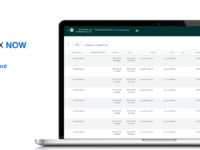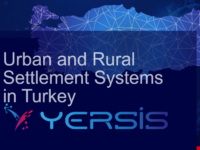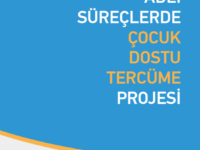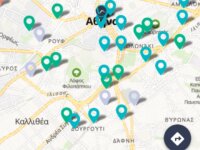First platform in the industry which support standalone and integrated workflow solution for any inspection,which leads to increased efficiency,security,and accuracy of inspection operations through virtual-inspection capability that enables the inspection teams to work remotely and reduce the need for field visits and addresses some pain points which includes inconsistency in quality,time consumption and resource management.stakeholders include Inspectors, Schedulers ,System admin,inspected org
Innovation Tag: Methods and Tools
Socioeconomic relations of all levels of settlements are examined with big data at the scale of the smallest settlements to the metropolitans (81 provinces, 973 districts and 37.036 rural units) in Türkiye. The attributes, needs and comparative advantages of each of the settlements analyzed in YER-SIS with an innovative methodology will enable evidence-based national and regional development policies. Public and private sectors, universities, and NGOs are primarily users benefiting from…
The innovation refers to a structured platform for cooperation between the Municipality of Amaroussion and the private sector for the public benefit. Corporate Social Responsibility resources are used to cover identified local needs in synergy with public interventions/services. Following a minor organisational reform, a team of officials has been trained to implement an innovative customised methodology that allows visibility and accountability and promotes the extroversion of public sector.
The project is aimed to prevent the loss of the rights of refugee children in Türkiye due to language and translation difficulties in judicial processes. Children involved in judicial processes, translators, judges-prosecutors and other auxiliary judicial staff have benefited very much from the project. For the first time, the capacity of translators has been strengthened and the secondary trauma risks of children have been mimized.
Case Study
A National platform for the prevention of violence that involves children “I protect you”
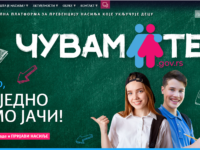
Online platform “I protect you” enables a centralised approach to combating violence. It encompasses work of 7 ministries in one national online platform and improves access to information, training, as well as prevention and intervention tools. By integrating all aspects of prevention and tools for combating violence, it raises the capacity of children, teachers, parents through specifically designed free online training, as well as institutions to recognize and quickly address violence.
The "EXTREMA Global" application aims at the personalized risk assessment of thermal stresses. Specifically, it is a smartphone application that uses weather data for a specific geographic location and provides personalized information to city residents and visitors about heat-related health threats. Athens was the first city in Greece to use this application.
Case Study
Innovation Zones, Facets and Beyond – LIEPT (Lund Innovation Ecosystem Portfolio Tracking)…
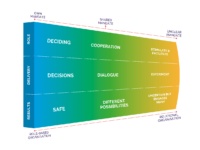
To provide a systematic approach for initiating and tracking collaborative development processes over time and inform investment decisions in multi-stakeholder environments, Future by Lund (FBL) has implemented a new model for innovation ecosystem portfolio tracking (LIEPT). The model benefits partnering stakeholders by building strategic competence for scaling solutions and working with innovation portfolios as an approach for governing and developing the ecosystem’s priority areas.
IQed (Inquiries/Questions in education) utilizes cutting-edge Democratic Technology in classrooms for the purpose of empowering students and educators in Digital Literacy, Civic Literacy, Dynamic Engagement, Critical Thinking/Problem-Solving Skills and Global Competency Education. IQed enables every student to use their personal devices to explore, investigate and become informed on issues of governance and global matters, so that their voice can positively impact local and global communities.
Together with partners from 5 other European countries, the Province of Fryslân developed an innovation model (so-called Tipping Approach) to catalyse and stimulate bottom-up innovations and harness ideas from local stakeholders. Complementing this, a governance model is being developed to provide civil servants with tools to implement these innovations in the social process in a simple and user-friendly way.
The AJSC has developed a new model to measure the determinants of the ‘quality of life’ in Ajman, covering six key areas of public service. The Model comprises a comprehensive factor measurement framework embedded on a sophisticated web-based application, with inbuilt protocols for scientific data collection, project management, data visualization and reporting. It systematically measures gaps and impact of interventions, via targeted performance assessment of framework factors.

